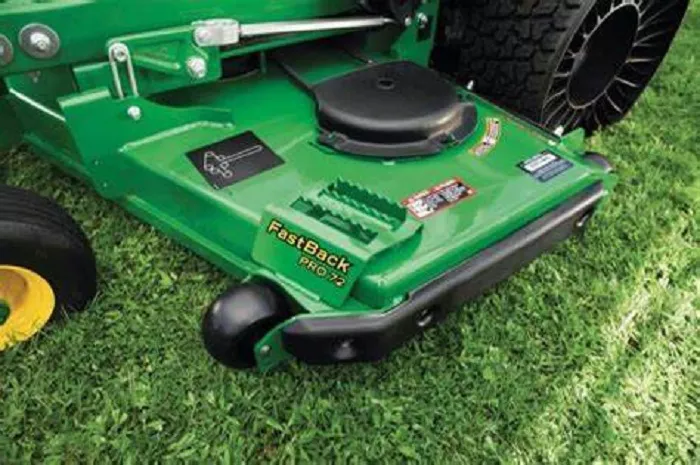Maintaining a lawn mower deck is crucial for ensuring smooth operation, prolonging equipment life, and achieving a clean, even cut. One of the most critical yet often overlooked aspects of deck maintenance is proper lubrication. Using the correct grease for your mower deck can prevent premature wear, reduce friction, and protect against rust and corrosion.
Key Properties of a Good Mower Deck Grease
High Temperature Resistance
Mower decks generate heat due to friction. A good grease should withstand temperatures up to 300°F (150°C) without breaking down.
Water Resistance
Since mower decks are exposed to moisture, the grease must repel water and prevent rust. Look for NLGI Grade 2 grease with water-resistant additives.
Extreme Pressure (EP) Protection
Spindle bearings endure heavy loads. Grease with EP additives (like lithium or calcium sulfonate) provides extra protection against wear.
Adhesion Properties
The grease should stay in place and not get flung off by spinning parts.
Types of Grease Suitable for Mower Decks
Lithium-Based Grease (NLGI Grade 2)
Best for: General-purpose mower deck lubrication.
Pros: Good water resistance, moderate temperature tolerance, widely available.
Cons: May require more frequent reapplication in extreme conditions.
Calcium Sulfonate Grease
Best for: Wet or corrosive environments.
Pros: Excellent water resistance, long-lasting, superior rust protection.
Cons: More expensive than lithium grease.
Synthetic Grease (Polyurea or PTFE-Based)
Best for: High-speed commercial mowers.
Pros: Performs well in extreme heat and cold, long service life.
Cons: Higher cost, not always necessary for residential mowers.
Moly (Molybdenum Disulfide) Grease
Best for: Heavy-duty mower decks with high load-bearing parts.
Pros: Reduces friction under extreme pressure.
Cons: Can be messy and attract dirt if over-applied.
How to Properly Grease a Mower Deck
Clean the Area
Wipe away dirt and old grease to prevent contamination.
Apply Grease
- Use a grease gun for fittings.
- Pump grease until it starts to seep out (indicates full lubrication).
- For non-fitted bearings, pack grease by hand or with a bearing packer.
Wipe Excess Grease
Excess grease attracts dirt, leading to grinding paste that wears out bearings.
Frequency of Greasing
Residential mowers: Every 25 hours of use or at least once per season.
Commercial mowers: Every 10-15 hours due to heavy use.
Common Mistakes to Avoid
Over-Greasing
Too much grease causes heat buildup and attracts debris.
Under-Greasing
Insufficient lubrication leads to dry bearings and premature failure.
Ignoring Worn-Out Bearings
If bearings are already damaged, greasing won’t fix them—replace them first.
Recommended Grease Products
Lucas Oil Heavy Duty Green Grease (Lithium Complex)
Best for: All-around mower deck use.
Features: Water-resistant, high-temperature stability.
Mobil 1 Synthetic Grease
Best for: High-performance and commercial mowers.
Features: Synthetic base, long-lasting.
Super Lube Synthetic Grease (PTFE)
Best for: Smooth, long-lasting lubrication.
Features: Works in extreme temperatures.
Valvoline Crimson Grease (Calcium Sulfonate)
Best for: Wet and corrosive environments.
Features: Excellent rust protection.
John Deere SD Polyurea Grease
Best for: OEM-compatible lubrication.
Features: Designed for agricultural and mower equipment.
Conclusion
Choosing the right grease for your mower deck is essential for maintaining peak performance and durability. Lithium-based grease (NLGI Grade 2) is the most common choice, but calcium sulfonate or synthetic grease may be better for harsh conditions.By following these guidelines, you can ensure your mower deck operates smoothly for years, saving you time and money on repairs. Invest in the right grease today—your mower will thank you!

